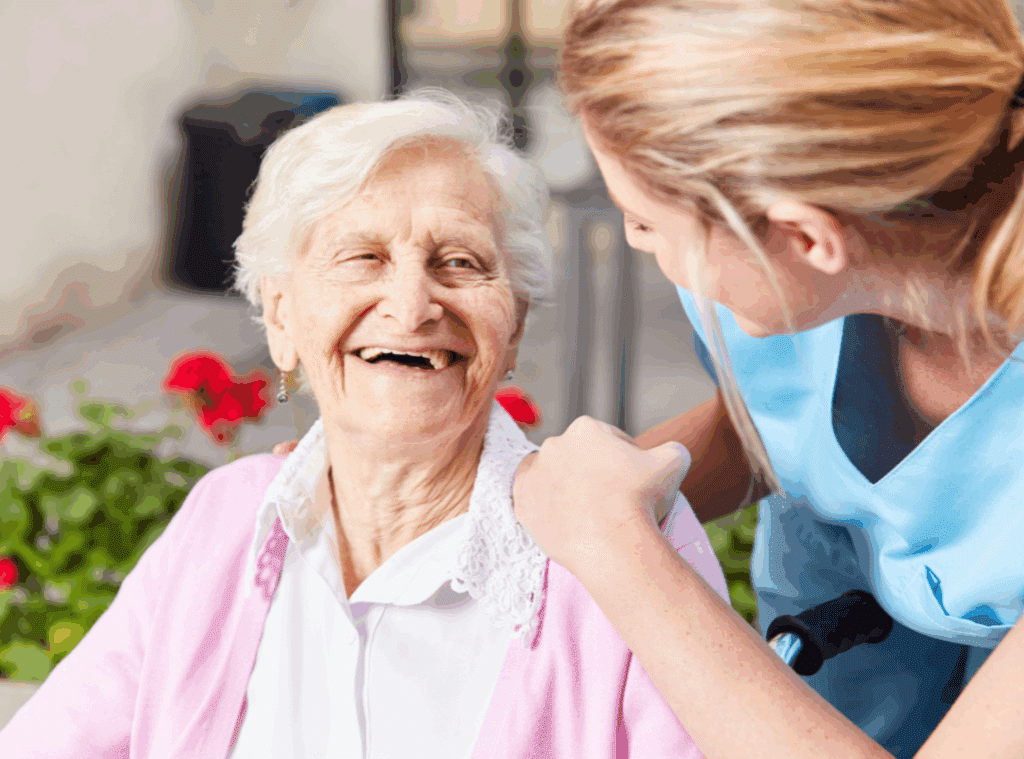Maintaining proper geriatric dental care is essential to ensuring your senior loved ones can smile, eat, and speak comfortably every day. At Westmont of Escondido, we understand that seniors face unique challenges when it comes to oral health. From mobility issues to chronic conditions and medication side effects, aging often calls for a more compassionate, tailored approach to dental care.
Whether you’re searching for a geriatric dentist near you or planning regular check-ups with a dentist for the elderly, having a solid care plan in place can make all the difference. This guide outlines best practices and practical steps for optimizing your loved one’s dental health, supported by the right professionals and thoughtful care strategies.
Understanding the Needs of Seniors in Dental Care
As people age, oral health often becomes more complex. Seniors are more prone to gum disease, dry mouth, tooth decay, and oral cancer. These concerns highlight the importance of specialized geriatric dental care.
A trusted geriatric dentist will take into account not just teeth and gums but the whole person—medical history, medications, cognitive condition, and physical limitations. Effective care must also consider the emotional and social aspects of aging, building a trusting relationship with patients who may be anxious or resistant to treatment.
Good nutrition is a major factor too, as dietary habits can influence oral and overall health outcomes. Soft diets, common among seniors, can limit exposure to chewing and stimulate less saliva, increasing the risk of cavities and gum disease.
Creating Personalized Geriatric Dental Plans
When working with a dentist for the elderly near you, developing a customized plan ensures care aligns with the patient’s full health picture.
1. Reviewing Medical Background
The best geriatric dentist near you will begin by evaluating the patient’s medical history, current medications, and chronic illnesses. For example, someone taking antihypertensive drugs might experience dry mouth, which increases the risk of gum infections and decay. Tailoring dental care to these details is critical.
Explore how different levels of senior care affect oral hygiene routines, especially for seniors requiring daily assistance.
2. Using Individualized Treatment Checklists
A geriatric dental care checklist should include:
- Medication interactions that could affect dental treatment
- Prioritization of treatments based on pain or urgency
- Accessibility needs for mobility or hearing challenges
- Preventive strategies to maintain oral hygiene between visits
Including these steps not only enhances care but also reduces future complications.
3. Addressing Psychological & Social Health
Emotional well-being impacts oral health. Seniors with cognitive decline or depression may neglect dental care. Recognizing emotional cues, creating a comforting environment, and incorporating caregivers in the process can improve outcomes.
Learn more about how depression affects memory and, consequently, dental habits among seniors.
Improving Dental Visits Through Comfort and Communication
A welcoming and accommodating environment at your geriatric dentistry near you can relieve anxiety and create a smoother experience for seniors.
Enhancing Patient Comfort
Adjusting the environment and appointment process includes:
- Scheduling during quiet hours
- Providing extra time per visit
- Ensuring dental chairs and tools accommodate reduced mobility
- Offering sedation or gentle numbing methods when needed
Communicating with Clarity and Empathy
Dentists and caregivers should adopt strategies like:
- Using short, simple sentences
- Allowing time to process and respond
- Using non-verbal cues or visual aids
- Reassuring and validating feelings
Building this connection improves the experience for both the senior and the care team.
Making Senior-Friendly Accommodations
If you’re searching for a dentist for the elderly near you, prioritize practices that understand senior needs:
- Accessibility: Wheelchair ramps, wide doorways, and adjustable chairs make the clinic more accommodating.
- Sensory Support: Provide written instructions or visual cues for those with hearing or cognitive impairments.
- Extra Time: Allowing more time for each visit helps the patient feel relaxed and heard.
Look for professionals who advertise themselves as geriatric dentist near you or have experience in geriatric dentistry near you to ensure they provide these services.
Maintenance Strategies for Lifelong Oral Health
Regular dental visits should be part of your loved one’s wellness plan, whether they live independently or in assisted living. Key steps include:
- Professional cleanings at least twice a year
- Daily brushing and flossing, possibly with adaptive tools
- Denture cleaning and fit checks
- Monitoring dry mouth and other side effects from medication
Resources like Tips for Managing Aging Health Problems offer additional support in addressing related concerns.

Innovations and Opportunities in Geriatric Dentistry
Dental technology continues to evolve, and seniors can now benefit from improved techniques and tools. Some advancements to look for include:
- Laser dentistry for less-invasive procedures
- 3D imaging for accurate diagnoses
- Sedation options for comfort
- Specialized implants for aging gums and bones
Clinics that offer these services often market themselves as experts in geriatric dental care or geriatric dentistry near you—an indicator that they’re equipped to meet senior needs.
Explore resources like the American Dental Association on Aging and Dental Health and NIH’s Guide to Dental Care for Older Adults to stay informed about the latest in senior dental wellness.
Bright Smiles Ahead: Supporting Senior Oral Health
Investing in geriatric dental care means investing in your loved one’s dignity, comfort, and quality of life. By working closely with a qualified geriatric dentist, conducting thorough assessments, and ensuring clear communication, you’re setting the stage for long-term oral health success.
Whether you’re seeking a dentist for elderly near you or want to better understand what to expect in geriatric dentistry near you, these strategies can help you take informed steps toward better care. A compassionate, knowledgeable team can transform dental visits from stressful experiences into opportunities for healing, comfort, and confidence.
For personalized care solutions and compassionate support, contact Westmont of Escondido at 760-737-5110. Learn more and book a tour on our website: Schedule a Tour.
Discover the level of care you or your family member requires. What Level of Care Do You Need?
Frequently Asked Questions
What is geriatric dentistry?
Geriatric dentistry is a specialized branch of dental care focused on meeting the unique oral health needs of older adults. It addresses age-related dental conditions, such as dry mouth, root decay, and gum disease. This type of care often involves personalized treatment plans to manage chronic health conditions and medications that may affect oral health. Geriatric dentists aim to improve both the function and comfort of elderly patients’ teeth and gums.
What is the most common geriatric dental problem?
The most common dental problem in seniors is periodontal (gum) disease, which can lead to tooth loss if untreated. Age-related issues, such as dry mouth caused by medications, can worsen gum problems and tooth decay. Many elderly individuals may also face difficulty maintaining oral hygiene due to physical or cognitive limitations. Regular dental check-ups and proper oral care can help manage and prevent these issues.
What are the oral changes in geriatric patients?
As people age, they often experience oral changes such as reduced saliva production, gum recession, and increased tooth sensitivity. These changes can make the mouth more vulnerable to infections, cavities, and difficulties with chewing or speaking. Some seniors may also wear dentures, which require special care and adjustment. Recognizing these changes early allows for better management and improved quality of life.
What is considered geriatric care?
Geriatric care refers to comprehensive healthcare services tailored to the needs of older adults. It includes medical, dental, emotional, and social support to help seniors maintain independence and quality of life. This care often involves coordination among healthcare professionals to manage multiple health conditions. The goal is to promote well-being, prevent decline, and support aging with dignity.








